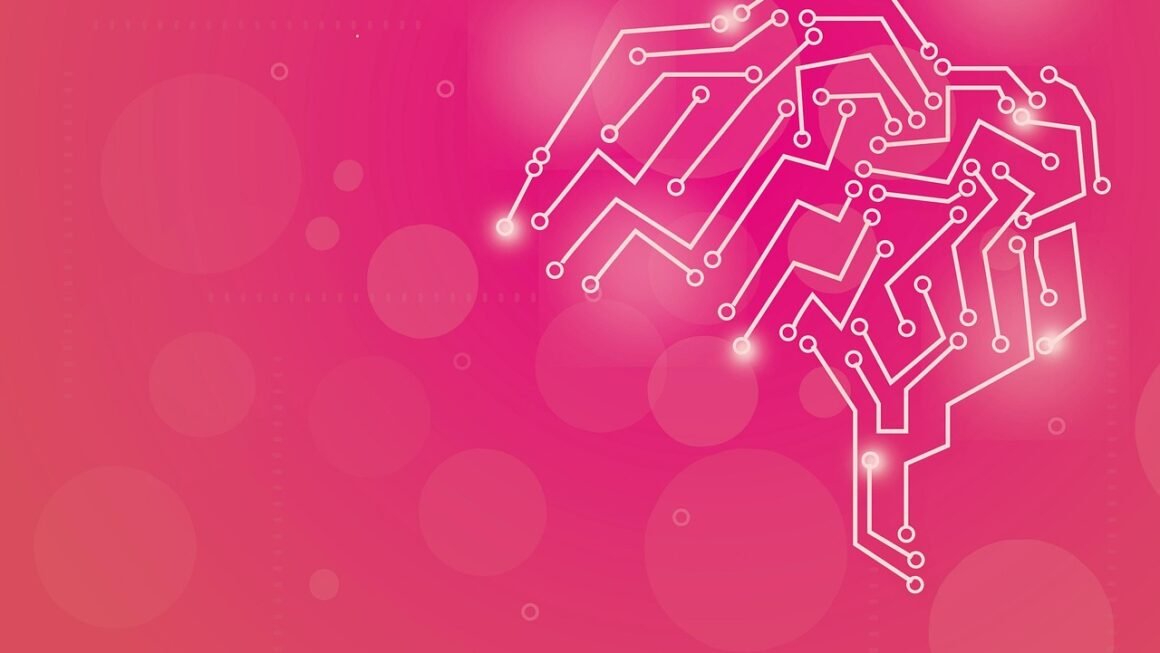The rise of artificial intelligence (AI) is rapidly transforming our world, bringing with it immense potential to solve complex problems and improve our lives. However, this transformative power also raises profound ethical questions. From biased algorithms perpetuating societal inequalities to autonomous weapons making life-or-death decisions, the ethical implications of AI demand careful consideration and proactive solutions. This blog post delves into the critical realm of AI ethics, exploring key challenges and offering insights into responsible development and deployment.
Understanding AI Ethics
What is AI Ethics?
AI ethics is a branch of applied ethics that focuses on the moral principles and values that should govern the development, deployment, and use of artificial intelligence. It’s about ensuring that AI systems are designed and used in a way that is beneficial to humanity, respects human rights, and minimizes potential harms. It’s not just about avoiding bad outcomes; it’s also about actively promoting positive social impact.
- Key Goals of AI Ethics:
Ensure fairness and prevent discrimination.
Promote transparency and accountability.
Protect privacy and data security.
Foster human autonomy and control.
Prevent misuse and unintended consequences.
Why is AI Ethics Important?
The importance of AI ethics stems from the potential for AI to have a significant impact on individuals, organizations, and society as a whole. Without careful ethical considerations, AI systems can perpetuate existing biases, lead to discriminatory outcomes, and erode fundamental rights. Consider, for example, an AI-powered hiring tool trained on historical data that reflects gender bias. The tool might unfairly favor male candidates, reinforcing existing inequalities in the workplace.
- Risks of Ignoring AI Ethics:
Bias and Discrimination: AI systems can amplify existing biases in data, leading to unfair or discriminatory outcomes.
Lack of Transparency: Opaque algorithms can make it difficult to understand how AI systems arrive at their decisions.
Privacy Violations: AI systems can collect and analyze vast amounts of personal data, raising concerns about privacy and surveillance.
Job Displacement: Automation driven by AI can lead to job losses in certain sectors.
Security Threats: AI systems can be vulnerable to hacking and manipulation, posing security risks.
Key Ethical Challenges in AI
Bias and Fairness
AI algorithms are trained on data, and if that data reflects societal biases, the AI system will likely perpetuate and even amplify those biases. This can lead to unfair or discriminatory outcomes in areas such as hiring, loan applications, and even criminal justice.
- Example: Facial recognition systems have been shown to be less accurate at identifying people of color, which can lead to misidentification and wrongful accusations. A 2018 study by the MIT Media Lab found that facial recognition systems developed by major tech companies had significantly higher error rates for darker-skinned individuals.
- Mitigation Strategies:
Data Auditing: Thoroughly review training data for biases and inaccuracies.
Algorithm Design: Develop algorithms that are explicitly designed to mitigate bias.
Fairness Metrics: Use metrics to evaluate the fairness of AI systems across different demographic groups.
Transparency and Explainability
Many AI systems, particularly those based on deep learning, are “black boxes,” meaning it’s difficult to understand how they arrive at their decisions. This lack of transparency can make it challenging to hold AI systems accountable and can erode trust in their use.
- Example: An AI-powered loan application system might deny a loan without providing a clear explanation for the decision. This can leave the applicant feeling confused and frustrated, and it makes it difficult to challenge the decision.
- Benefits of Transparency:
Increased Trust: Understanding how AI systems work can increase trust in their use.
Accountability: Transparency makes it easier to hold AI systems accountable for their decisions.
Error Detection: Transparency can help identify errors and biases in AI systems.
Privacy and Data Security
AI systems often rely on large amounts of personal data to function effectively. This raises concerns about privacy and data security, as well as the potential for misuse of data.
- Example: AI-powered surveillance systems can collect and analyze data about people’s movements and activities, raising concerns about privacy and potential for abuse.
- Data Privacy Principles:
Data Minimization: Collect only the data that is necessary for the specific purpose.
Purpose Limitation: Use data only for the purpose for which it was collected.
Data Security: Protect data from unauthorized access and use.
Transparency: Be transparent about how data is collected and used.
Autonomous Weapons Systems (AWS)
The development of autonomous weapons systems (AWS), also known as “killer robots,” raises profound ethical concerns. These are weapons that can select and engage targets without human intervention. Critics argue that AWS raise fundamental questions about accountability, human control, and the ethics of delegating life-or-death decisions to machines.
- Arguments Against AWS:
Lack of Human Judgment: AWS lack the human judgment and empathy necessary to make ethical decisions in complex situations.
Accountability: It’s difficult to hold anyone accountable for the actions of an autonomous weapon.
Escalation of Conflict: AWS could lead to an escalation of conflict, as they can act more quickly and decisively than humans.
Implementing AI Ethics in Practice
Developing Ethical AI Guidelines
Organizations need to develop clear ethical guidelines for the development and deployment of AI systems. These guidelines should be based on fundamental ethical principles and should address key issues such as bias, transparency, privacy, and accountability.
- Example: Google’s AI Principles outline the company’s commitment to developing AI responsibly and ethically. These principles include avoiding bias, protecting privacy, and being accountable for the impact of AI systems.
- Key Components of Ethical AI Guidelines:
Statement of Values: Clearly articulate the organization’s ethical values and principles.
Risk Assessment: Identify potential ethical risks associated with AI systems.
Mitigation Strategies: Develop strategies to mitigate those risks.
Monitoring and Evaluation: Monitor the performance of AI systems and evaluate their impact on society.
Building Diverse and Inclusive AI Teams
A diverse and inclusive AI team is essential for ensuring that AI systems are developed and deployed ethically. Diverse teams are more likely to identify and address potential biases and to consider the needs of all stakeholders.
- Benefits of Diverse Teams:
Wider Range of Perspectives: Diverse teams bring a wider range of perspectives to the table.
Improved Problem Solving: Diverse teams are better at solving complex problems.
Reduced Bias: Diverse teams are less likely to perpetuate biases.
- Strategies for Building Diverse Teams:
Recruiting: Actively recruit candidates from diverse backgrounds.
Training: Provide training on diversity and inclusion.
Mentorship: Offer mentorship opportunities for underrepresented groups.
Auditing and Evaluating AI Systems
Regularly audit and evaluate AI systems to ensure they are performing as expected and are not causing unintended harm. This includes monitoring for bias, evaluating transparency, and assessing privacy risks.
- Key Areas for Auditing:
Data Quality: Assess the quality and representativeness of training data.
Algorithm Performance: Evaluate the performance of algorithms across different demographic groups.
Impact Assessment: Assess the impact of AI systems on individuals and society.
- Tools and Techniques for Auditing:
Fairness Metrics: Use metrics to evaluate the fairness of AI systems.
Explainability Techniques: Use techniques to understand how AI systems arrive at their decisions.
* Red Teaming: Conduct red teaming exercises to identify vulnerabilities in AI systems.
Conclusion
AI ethics is not just a theoretical concern; it’s a practical imperative. As AI becomes more pervasive, it’s crucial to address the ethical challenges proactively and to develop AI systems that are aligned with human values. By implementing ethical guidelines, building diverse teams, and regularly auditing AI systems, we can harness the power of AI for good and create a future where AI benefits all of humanity. The ongoing conversation surrounding AI ethics requires continuous learning, adaptation, and a commitment to responsible innovation. The future of AI depends on the choices we make today.



